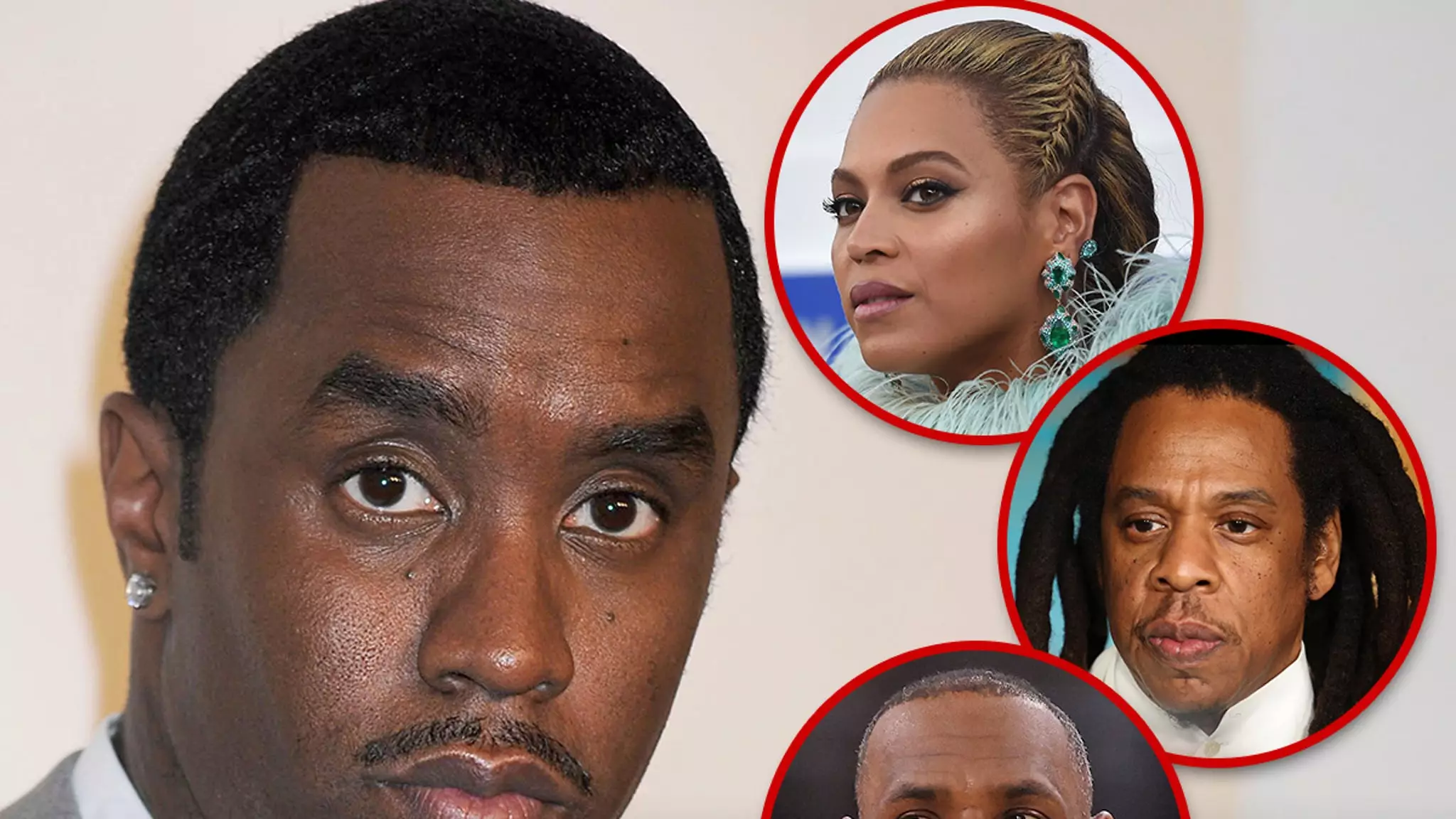In a stunning development within the entertainment realm, music mogul Diddy finds himself embroiled in a sensational lawsuit that paints a disturbing picture of his alleged actions at a lavish party in Miami. The claims, brought forth by Joseph Manzaro, not only detail accusations of sexual assault and humiliation but also suggest that some of the industry’s biggest names, such as Jay-Z, Beyoncé, LeBron James, and Gloria Estefan, witnessed the horrifying events unfold. What is particularly alarming about this situation is the stark contrast between the glamorous façade of celebrity life and the disturbing experiences that sometimes lurk beneath.
Manzaro claims that he was drugged and subsequently subjected to acts of humiliation at what he has termed a “freak-off” party in April 2015, celebrating the 17th birthday of Diddy’s son, King Combs. In the lawsuit, he asserts that he was made to wear a degrading costume and paraded around, all while being jeered at by partygoers. This narrative depicts a world where power dynamics are exploited, and consent is all but forgotten—a haunting representation of the darker underbelly of celebrity culture.
The Alleged Orchestration of Humiliation
Details from the lawsuit are enough to provoke outrage. Manzaro describes being transported to a mansion located on Star Island, where he was greeted by a bewildering scenario that would leave anyone feeling violated. The allegation that Gloria Estefan attempted to intervene when she saw Manzaro in a “drug-induced stupor” paints a heartbreaking picture of someone who recognized the distressing situation but found themselves overpowered—a reminder that in the presence of fame and influence, the voices of the vulnerable can be easily silenced.
The inclusion of well-known figures in these allegations only adds layers to the complexity of the situation. For instance, Manzaro mentions moments where he was in the presence of Jay-Z and Beyoncé, and while they did not participate in any wrongdoing, their mere presence serves as a backdrop to an awful scene. Jay-Z’s reported comment, querying the behavior surrounding Manzaro, raises essential questions about how witnesses act when they encounter troubling situations in social gatherings. It raises the uncomfortable notion of complicity and bystander intervention in events of potential harm.
Scrutinizing the Credibility of Claims
However, the veracity of Manzaro’s accusations has come under fire. Investigations into the timeline of events reveal inconsistencies, notably regarding Jay-Z’s whereabouts at the party. On the day of King Combs’ birthday celebration, it’s reported that Jay-Z was engaged in a separate event in New York City. This inconsistency begs the question: how reliable are the claims being made? In the realm of celebrity and power, how often do sensational stories emerge that ride on the waves of public fascination, regardless of their truth?
The legal representatives for Diddy have characterized the lawsuit as a desperate ploy for attention and financial gain, echoing a sentiment that many might agree with, considering the spectacle surrounding celebrity culture. They assert that grandiose claims often mask ulterior motives, which can dilute genuine grievances. In a society inundated with allegations and counter-allegations, it becomes increasingly challenging to discern truth from fiction.
The Psychological Toll on Victims
Regardless of the lawsuit’s outcome, the psychological ramifications for individuals who experience acts of humiliation and assault are profound and long-lasting. Manzaro’s narrative, whether or not fully factual, underscores the potential trauma faced by victims in an environment where deeply ingrained hierarchies overshadow personal autonomy. It reflects a larger societal issue: that high-status individuals sometimes feel exempt from accountability, leading to a normalization of exploitative behavior in celebrity circles.
Every reported incident, whether true or exaggerated, fuels the narrative around sexual violence and consent. The responsibility falls not only on the accused but also on witnesses who may turn a blind eye for the sake of maintaining their social standing. This phenomenon poses a challenge for society in addressing how we confront and intervene in cases of potential abuse while also navigating the complexities of fame.
Each revelation in this story ultimately serves as a reminder that the lives of public figures, although under the scrutiny of media and fans, can hold the same capacity for darkness as any other realm. Whether or not Joseph Manzaro’s allegations hold weight, they spotlight critical conversations about accountability, complicity, and the societal structures that often silence the voices of those who are vulnerable.

